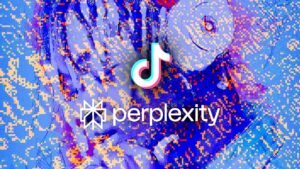
AlphaGeometry is a theorem prover for Euclidean plane geometry that aims to surpass the performance of human contestants in mathematical olympiads. The key contributions of AlphaGeometry are its use of synthetic data generation to sidestep the scarcity of human-provided proof examples and its neuro-symbolic approach that combines a neural language model with a symbolic deduction engine.
What makes AlphaGeometry unique is its approach to theorem proving. Unlike traditional machine-learning methods that rely on human-provided proof examples, AlphaGeometry synthesizes millions of theorems and proofs without the need for human demonstrations. It employs a neuro-symbolic system, combining a neural language model trained on vast synthetic data with a symbolic deduction engine. This allows it to navigate through intricate problems with infinite branching points.
Google DeepMind announced AlphaGeometry on Jan 17, 2024. It is an AI system solving Olympiad geometry problems at a level approaching a human gold-medalist.
In a test set featuring classical geometry problems translated from the IMO competitions since 2000, AlphaGeometry significantly outperforms previous state-of-the-art methods. While the best previous method solved only ten problems, AlphaGeometry impressively solves 25, approaching the performance level of an average IMO gold medallist.
- Proving theorems in mathematics represents a significant milestone in automated reasoning.
- Mathematical olympiads, dating back to 1959, are renowned for their challenging problems that test problem-solving skills.
- Traditional machine-learning approaches face difficulties due to the scarcity of human proofs translated into machine-verifiable formats, especially in geometry.
Key Features of AlphaGeometry:
- Synthetic Data Generation: AlphaGeometry generates synthetic data by exploring a vast space of random theorem premises, using a symbolic deduction engine that incorporates both geometric and algebraic rules. This approach allows the AI to create diverse and complex theorems.
- Neuro-Symbolic Approach: The system combines a neural language model, trained from scratch on the synthetic data, with a symbolic deduction engine. This neuro-symbolic approach enables AlphaGeometry to navigate through challenging problems by generating human-readable proofs.
- Proof Search Algorithm: The proof search involves a loop where the language model and symbolic deduction engine alternate turns. The language model generates auxiliary constructions, expanding the proof state, and the symbolic engine deduces new statements until the conclusion is reached or a maximum number of iterations is reached.
- Performance Benchmark: Tested on a set of 30 classical geometry problems from the IMO, AlphaGeometry solved an impressive 25 problems, surpassing the previous best method that could only solve ten problems. It approached the performance level of an average IMO gold medallist.
- Human Expert Evaluation: The AI-generated proofs were translated into natural language and evaluated by a human expert, demonstrating the system’s interpretability and effectiveness in producing solutions comparable to those of human contestants.
AlphaGeometry Framework:
- AlphaGeometry is a neuro-symbolic system that generates synthetic data by synthesizing millions of theorems and proofs across different levels of complexity in Euclidean plane geometry.
- The system employs a neural language model trained from scratch on synthetic data to guide a symbolic deduction engine through challenging problems.
- The synthetic data generation involves sampling random theorem premises and using a symbolic deduction engine to create synthetic theorems and their proofs.
Training Process:
- The language model is pretrained on 100 million synthetic proofs, including pure symbolic deduction.
- Fine-tuning is performed on a subset of proofs that require auxiliary constructions, improving the model’s focus on this specific task during proof search.
Evaluation and Results:
- AlphaGeometry is evaluated on a test set of 30 classical geometry problems adapted from the International Mathematical Olympiad (IMO) competitions.
- AlphaGeometry solves 25 out of 30 problems, outperforming previous methods and approaching the performance of an average IMO gold medallist.
- The system produces human-readable proofs and achieves results comparable to or surpassing existing geometry theorem provers.
AlphaGeometry represents a breakthrough in computer-aided theorem proving, demonstrating the capability to outperform human contestants in geometry problems from mathematical olympiads. The method of generating and training language models on synthetic data provides a potential solution for domains with limited annotated data.
The program’s success lies in its ability to generate human-readable proofs, tackling challenges specific to geometry that have hindered progress in recent machine-learning approaches. By using synthetic data and a neuro-symbolic framework, AlphaGeometry demonstrates a breakthrough in automating mathematical theorem proving, especially in geometry—a domain notorious for its scarcity of training data. The development of AlphaGeometry represents a leap forward in the quest for advanced theorem-proving capabilities, aligning with the historical pursuit of better AI-driven reasoning since the 1950s. Its achievements highlight the potential of synthetic data generation and neuro-symbolic methods to address data-scarcity issues in mathematical domains.










